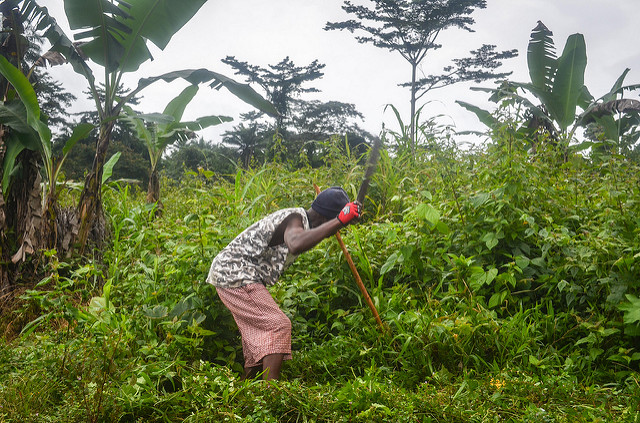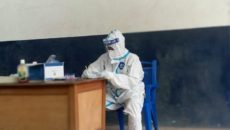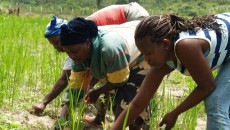Due to the decreased demand for major export commodities, the global prices for iron ore and rubber, two of Liberia’s main export commodities, continue to fluctuate with negative effects on the country’s socio-economic development.
As a result, there is a need to remodel the country’s economic growth plan as the road to recovery will involve creating more new jobs for the country. Agriculture presents an opportunity for achieving this while tackling food insecurity.
Currently, the agriculture sector contributes more than 40 percent to national GDP with the potential of providing more opportunities in the future, according to the World Bank. In order to be a potential contender, suitable investments in agricultural research, technology, smart business and trade policies could entice the agribusiness private sector to work alongside government in linking farmers with consumers to help create more jobs.
As a low-income nation that missed out on meeting the United Nations millennium development goals, increased support and efficient management of the agricultural sector could see Liberia graduate from a low-income to a middle-income country as set by the Sustainable development goals in the next 15 years.
Given the numerous contributions and huge potential of the agricultural sector, there are compelling reasons for prioritizing the agricultural sector as the country recovers from decades of instability.
Youth Employment
Liberia, like most African countries, has a youthful population with more than 49 percent of its population younger than 14 years. Much of the youth population is jobless – as such, there is a tremendous opportunity for high growth and poverty reduction by targeting the youth.
Globally, unemployment has been linked to the increase in crimes, especially among young people. In Liberia, where there is a sizeable number of ex-combatants, that link could be even stronger.
The UN has predicted that the agriculture sector has the potential to provide multiplicity of jobs for people of diverse skills, especially with recent advances in technology
With a projected population increase by 2030, the agricultural sector could be expanded beyond the traditional export of rubber, palm oil, timber and fisheries to include new products. Through value addition, service provision, and the adoption of new technologies, many young people could now be engaged in different fields of science, thus paving the way for a more science-based agriculture within the borders of Liberia.
Curbing Food Insecurity
Achieving food security will be a huge breakthrough for Liberia, as the country failed to meet Pillar Two of MDG, which was reducing hunger in half by 2015. High levels of malnutrition and food insecurity were experienced due to the Ebola outbreak, which overwhelmed normal economic activities, thus putting Liberia among countries dubbed food insecure.
Food insecurity is linked to national security threats, as witnessed across Africa in 2008 with a mass protest against soaring food prices. Liberians can even remember the Liberian Rice Riot in 1979 which plunged the country into chaos.
Prioritizing appropriate investment that could boost food production will be crucial to achieving Pillar Two of SDG. A thorough review of national agricultural policies aimed at meeting current realities will not only make Liberia food secure but a major regional hub for agricultural produce.
Foreign Exchange
Foreign exchange from the forestry sub-sector over the years cannot be overemphasized as a contribution from timber has been a major source of revenue especially during the long years of war in the country.
With a greater portion of forests in the upper gulf of Guinea belonging to Liberia, the country stands to benefit immensely not only from forest product but from valuable environmental and touristic services the sector offers.
Appropriate investment in water and irrigation technology, livestock, fisheries, rubber, oil palm cacao, and coffee are few among the many agricultural enterprises which could turn the current economic trend around.
Given global demand for renewable energy, Liberia could also exploit the possibilities of investing in biofuel crops to attract its foreign revenue base.
Liberians are already proud of the massive investment in rubber throughout the country, which is a sense of nation pride. The potential of raising the Lone Star higher through agriculture is another potential source of pride. What a tremendous accomplishment it would be if Liberia were considered the regional food security hub or biofuel giant of West Africa.
With strategic planning, proper prioritization, and efficient governance, Liberia can demand an envying position in African agriculture by setting the pace for others to follow in meeting the SDGs.
Featured photo by jbdodane



